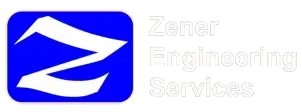When Streamlining Validation Becomes A Token Gesture
Has Blue Sky Thinking Gone Too Far?

In the highly regulated world of Life Sciences where product quality, patient safety, and regulatory compliance are all paramount, a suitable Validation approach provides documented confirmation that systems involved in the manufacturing operation of Quality Products are suitably operating to the required standard for ultimately the benefit of the Patient. Whether it's validating computerised systems, manufacturing processes, or analytical methods, the purpose should remain consistent across all Life Science organisations: which is to ensure that the Life Sciences' organisations systems perform as intended and consistently produce results that meet predefined quality attributes.
Yet, as the Life Science industry undergoes a digital transformation and current regulatory thinking evolves, organisations are increasingly under pressure to streamline validation approaches. At face value, this is a welcome shift. Traditional validation methods can be bloated, document-heavy, and resistant to innovation. Streamlining, when done right, promises agility, efficiency, and better use of risk-based approach principles.
However, in the experience of Zener Engineering Services Ltd, a troubling trend has emerged. In the pursuit of streamlined validation exercises, some Life Science organisations are treating streamlining as a checkbox exercise - a token gesture - rather than a meaningful transformation, often performed by the Supplier of the system under scrutiny.
This blog explores what it means when streamlining Validation approaches becomes a symbolic gesture rather than a meaningful exercise, and why this happens.
The Promise Of Streamlining Validation
Regulatory authorities like the FDA and EMA have evolved their thinking, advocating a more Risk-Based approach, which are in effect science-driven validation practices. Notably, guidance like GAMP 5 (Good Automated Manufacturing Practice) and CSA (Computer Software Assurance) encourage companies to focus more on critical thinking and less on paper or electronic documentation to provide evidence of a system’s suitable performance.
The advocated benefits of a streamlined validation approach include the following:
- Faster time to market
- Reduced validation effort on non-critical systems
- Improved focus on patient safety and product quality
- Lower operational costs
- Greater innovation in adopting new technologies
When executed with rigor and integrity, streamlining of validation approaches enables better use of resources and aligns validation efforts with business and regulatory priorities. As experts in validation, Zener Engineering Services Ltd have adopted this approach for many years!
When Streamlining Becomes Superficial
Despite the good intentions of the regulatory authorities, Zener Engineering Services Ltd are seeing more and more evidence of Life Science organisations approaching validation streamlining as a surface-level change, or as a means to justify doing very little in the way of a formal validation exercise. In the opinion of Zener Engineering Services Ltd, this manifests in several ways:
1. Reducing Documentation Without Increasing Understanding
Life Science organisations are slashing validation documents in the name of efficiency but fail to replace them with meaningful Risk Assessments or Critical Thinking. In the opinion of Zener Engineering Services Ltd this leads to poor superficial paperwork, with a diluted understanding of what was validated and why. We validate for intended use, and should provide suitable credible evidence of a system's performance!
2. Misapplying Risk-Based Approaches
Risk-Based validation approaches require a robust methodology for assessing the system’s impact and associated Risk. However, in recent experience of Zener Engineering Services Ltd some Life Science Organisations are using the term “Risk-Based” as a blanket justification for reducing the testing performed during qualification, even when the actual risk is high or not even well-understood and certainly not adequately documented.
3. Over Reliance On Automation Tools Without Validation
The availability of validation lifecycle management software and automated testing tools have led some Life Science organisations to assume that using such tools inherently means their processes are modern and compliant. In the experience of Zener Engineering Services Ltd, without proper governance, these tools simply automate flawed practices. Who checks the output of the automated tool, and more importantly is the tool validated?
4. Failure To Train Personnel In New Approaches
Critical thinking and Risk-Based validation demand a shift in mindset and capability. Life Science Organisations that fail to invest in personnel training or develop outdated Standard Operating Procedures (SOPs) end up perpetuating old habits under the guise of new terminology.
5. Treating CSA Or GAMP 5 As A Label, Not A Practice
In the experience of Zener Engineering Services Ltd it’s becoming more common to see Life Science organisations claim that they’ve “adopted GAMP 5” or are “doing CSA” without real behavioural change. These guidance frameworks become buzzwords instead of active methodologies.
6. Allowing Suppliers To Change Their "Commissioning" Titled Documentation To “Qualification”
In the experience of Zener Engineering Services Ltd, allowing Life Science Suppliers to simply change their documentation entitled “Commissioning” to "Qualification" can create significant regulatory and compliance risks.
There is a shift of emphasis and responsibility between Commissioning and Qualification exercises which needs to be documented, that in the name of streamlining and in the opinion of Zener Engineering Services Ltd, goes neglected in many instances.
The shift from Commissioning and Qualification originally indicated a transfer of responsibility from the Supplier to the Life Science organisation, particularly concerning validation and GMP compliance. Without fully understanding this responsibility shift, Life Science organisations may unknowingly assume accountability for data, systems, or equipment not Qualified under internal Quality Standards and procedures, which may lead to potential inspection findings, Product Quality issues, and Regulatory non-compliance. Clear documentation and responsibility boundaries are essential to mitigate these Risks.
Zener Engineering Services Ltd certainly do not advocate that the Suppliers of a system should be allowed to perform their own Qualification exercise on their own system. How many Suppliers would start again if they found an issue?
Why Does This Happen?
In the opinion of Zener Engineering Services Ltd there are several drivers behind the inadequate adoption of streamlined validation approaches:
- Compliance Fatigue: Life Science organisations are overwhelmed by Validation demands and may jump at any opportunity to cut corners, especially when told that "Risk-Based" allows it.
- Executive Pressure For Agility: In more and more cases in the experience of Zener Engineering Services Ltd, Life Science organisation leadership teams tend to focus on speed-to-market or digital transformation. Therefore the leadership push for Validation reform without fully understanding the regulatory requirements, which leads to shortcuts and inherent Risks.
- Lack Of Cross-Functional Alignment: The streamlining of Validation approaches requires input from many different stake holders including: QA, IT, business units, and Validation teams. Misalignment or siloed thinking in the experience of Zener Engineering Services Ltd can result in partial adoption and inconsistent execution.
- Misinterpretation Of Regulatory Guidance: Regulatory frameworks are written to be flexible and require professional judgment. When misinterpreted, (either deliberately or otherwise) flexibility turns into complacency, which increases the risk to the Life Science organisation and ultimately the Patient.
The Risk Of Tokenism
When the streamlining of Validation approaches becomes a token gesture, risks are significantly increased. These include, but are not limited to:
- Regulatory Non-Compliance: Superficial Validation exposes Life Science organisations to inspection findings, warning letters, or product recalls.
- Product and Patient Risk: If critical systems or processes are inadequately Validated, it can compromise Product Quality and Patient Safety.
- Loss of Stakeholder Trust: Token Validation exercises erode credibility with Regulators, partners, and even internal teams. A suitable transformation to the adoption of a more Risk-Based approach requires transparency and accountability.
- Share Price Impact: The Life Science organisation's share price can fall up to 30% due to negative market sentiment.
- Regulatory Authority Sanctions: The removal of licences to sell products and inhibit New Drug Applications (NDAs) are examples of the sanctions which can be imposed by Regulatory Authorities.
Ready To Simplify Your Validation Process Without Compromising Compliance?
At Zener Engineering Services Ltd, we specialise in risk-based, streamlined validation approaches that reduce time, cost, and complexity - while ensuring full regulatory compliance. Whether you're upgrading systems, validating equipment, or navigating digital transformation in your GMP environment, our expert team is here to help by:
✅ Cutting redundant testing
✅ Focusing on critical quality attributes
✅ Accelerating project timelines
Discover how our validation strategies align with ISPE GAMP® 5 and industry best practices. Let’s transform your validation approach, both efficiently and effectively.
Contact ZES today to schedule a free consultation or learn more about our tailored validation solutions.












